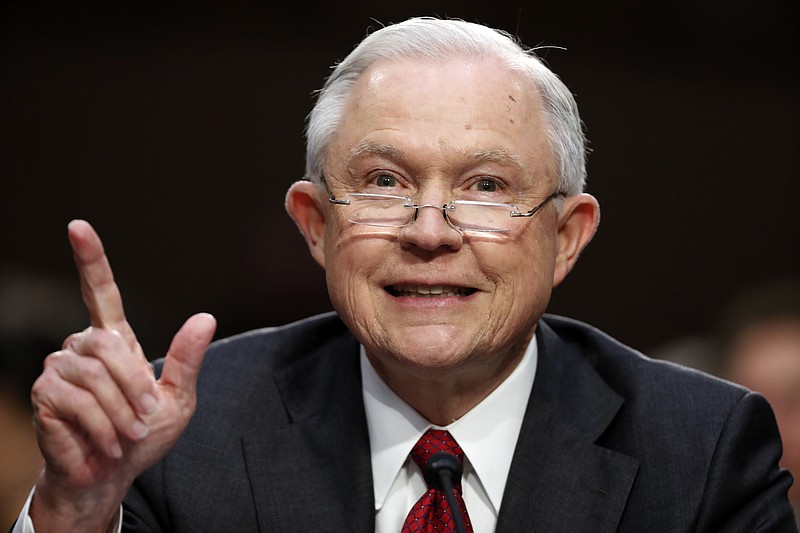WASHINGTON (AP) - President Donald Trump cranked up the heat Tuesday on Attorney General Jeff Sessions, scorning him as "very weak" and refusing to say whether he'll fire the nation's top law enforcement officer and his onetime political ally. It was an extraordinary public rebuke, and even fellow Republicans pushed back forcefully.
All through a day of anything-but-subtle tweets and statements, Trump rued his decision to choose Sessions for his Cabinet and left the former senator's future prospects dangling.
"We will see what happens," Trump said. "Time will tell. Time will tell."
His intensifying criticism has fueled speculation the attorney general may step down even if the president stops short of firing him. But several people close to the former Alabama senator have said he does not plan to quit.
In private, Trump raged to confidants that Sessions had been disloyal in recusing himself from the federal investigation of Russia's meddling in the presidential election and the possibility of collaboration with the Trump campaign. Sessions himself had met with Russian Ambassador Sergey Kislyak before the election as a representative of the Trump campaign and thus stepped aside from the probe.
As he has previously, Trump said he would have "quite simply picked someone else" for the job if he'd known Sessions would recuse himself. He called Sessions' decision a "bad thing for the presidency."
He also said the attorney general ought to get cracking on stopping leaks from federal intelligence agencies.
The president's first broadside of the day came in a tweet: "Attorney General Jeff Sessions has taken a VERY weak position on Hillary Clinton crimes (where are E-mails & DNC server) & Intel leakers!"
Trump's harsh words drew a strong response from a number of Sessions' former Senate colleagues, suggesting all Republicans may not fall in line this time behind the president.
"Jeff Sessions is one of the most decent people I've ever met in my political life," said South Carolina Sen. Lindsey Graham. "President Trump's tweet today suggesting Attorney General Sessions pursue prosecution of a former political rival is highly inappropriate."
Sens. Richard Shelby of Alabama, Thom Tillis of North Carolina and others also voiced support of their former colleague, as did several key conservative religious leaders and Breitbart News, the conservative news site formerly run by White House chief strategist Steve Bannon.
Former South Carolina Sen. Jim DeMint said he understood Trump's frustration with "the endless media obsession over Russia" and his inability to get his agenda through Congress. But he cautioned "pushing Jeff Sessions out won't get Congress to move forward on his policies or stop liberals attacks. And Trump would lose a great ally and widely respected advocate for the rule of law."
House Speaker Paul Ryan took a hands-off approach, saying simply: "The president gets to decide what his personnel is."
Sessions' exit could raise the specter of Trump asking Rosenstein - or whomever he appoints to fill the position - to fire Robert Mueller, the special counsel leading the investigation into Russia's meddling in the 2016 election and potential collusion with Trump's campaign. That would seem to fulfill the vision of the Justice Department that Trump's critics believe he articulated during the campaign: a place that, at his direction, will punish his political enemies.

